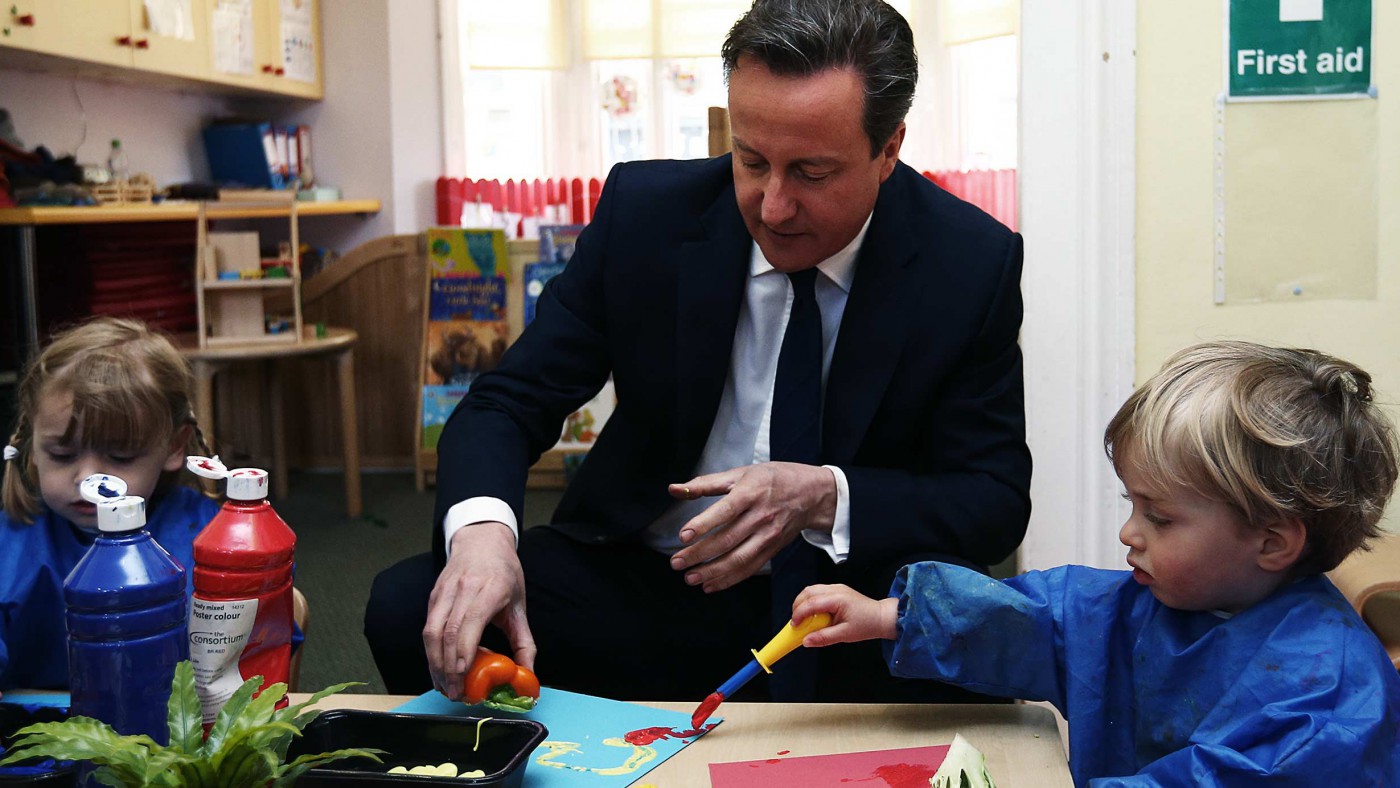There are certain arguments that are not worth having, or at least not if one wants to carry on having friends. For my generation, the question of whether or not one parent in a two person relationship should stay at home and look after young children is one of those lose-lose subjects on which you will never hear anyone say that now they have heard you make the case they have just changed their mind.
Evidence doesn’t really come into it. In the broad, modern middle classes it is about social norms and the stories we tell ourselves about work, success, stress, money, ambition and the values we hope to pass on.
This means that parents who both go out to work have no interest in hearing from parents who chose a different approach – with one adult staying at home looking after children. They do not want to hear that, hey, it was a financial sacrifice but the children got so much out of having mum or dad at home full-time, especially in the years before school. Perhaps the family in which both parents go out to work had no choice, if they wanted an acceptable house and a holiday once a year. Or perhaps they both like going out to work. No point going there. No one sensible wants to be the person at the party about whom the other guests say: oh no, here comes that really socially conservative guy who is going to make us feel like narcissistic bad parents.
Equally, parents who have decided that one parent should be at home in the formative years, have absolutely no interest in hearing that actually Ivo and Tilly benefited from both parents working. Being in childcare improved their social skills (at the age of 2) and now they are much more comfortable around other adults, and less clingy (they’ll be distant when they’re older, you think), and in their mother they have a really positive role model. The unfortunate implication is that unless your children have a mother who has written a novel about being a successful woman, been CEO of a FTSE 100 company, and at the weekend run the London Marathon backwards, all by the time she is 40, then really your kids will think later in life that that they were spawned by a miserable failure and as a result become hopeless alcoholics and unemployable vagrants.
And then there are the people who don’t have children but who wanted them, who often have to listen to all this middle class nonsense on both sides. They must marvel at the insensitivity of people with children (usually men with large broods, who mistake their partner’s stamina for their own Alpha Male potency) who talk about this stuff in front of them and clearly fail to comprehend that life dealt their friends or colleagues a different hand.
The reason I mention all this is that the Tory leader David Cameron has strayed into this dangerous territory with his latest speech and associated tweets. A string of announcements and declarations on welfare and the family were involved. Here is one – about the UK government’s childcare plans – that just jumped out.
PM: Families are the best welfare system there is. In the next 5 years we will double free childcare for 3 & 4 yrs olds with working parents
— UK Prime Minister (@Number10gov) June 22, 2015
That tweet makes no sense, no sense at all. It is not just that it features an internal contradiction and blatant doublespeak, implying that proper families are only those where both parents go out to work, and seeks to legitimise yet another a state subsidy by invoking family. It also implies that those who are at home looking after children are somehow not working hard, which is an argument I would like to see Cameron or Osborne repeat to a room full of stay at home mothers or fathers.
Of course, the policy of extending childcare is really a cheeky upper middle class subsidy cloaked in the rhetoric of concern for the poor. It means that higher earning parents can spend less on childcare and have more money left for other things such as good holidays. If you like that sort of thing, fine, but please, for the Prime Minister to pretend that such an initiative is really about reforming the welfare system and strengthening the family takes the biscuit.
One of the most interesting aspects of Cameron’s time as Tory leader is the manner in which he has changed in two important ways, while maintaining the illusion of patrician consistency.
First, in 2012 he abandoned his stubborn refusal to only listen to a tiny core of people he had trusted for ever when he realised he was at risk of losing the 2015 election. Lynton Crosby was hired and the election was won, although those who devised the plan for target seats also deserve credit. But what facilitated the Tory win was Cameron calmly adapting, which many leaders find impossibly difficult.
Second, he became Tory leader with a moderately socially conservative view of family policy. Marriage should be rewarded more in public policy, he argued, much to the annoyance of the more intrinsically metropolitan George Osborne, whose views are of an ultra-liberal Notting Hill variety. The story of Cameron’s time as Prime Minister is partly about the way in which he was steadily defeated, beginning with the child benefit changes, on a core aspect of his worldview by his friend the Chancellor.
Now Cameron promotes an Osborne-style policy – “pro-working parents,” get both parents into work ASAP, and present childcare as the right thing to do when it is done by other people, but not the right thing to do when it is done full-time by a child’s own parents – and badges it as a boost for the family. Politics, eh?


